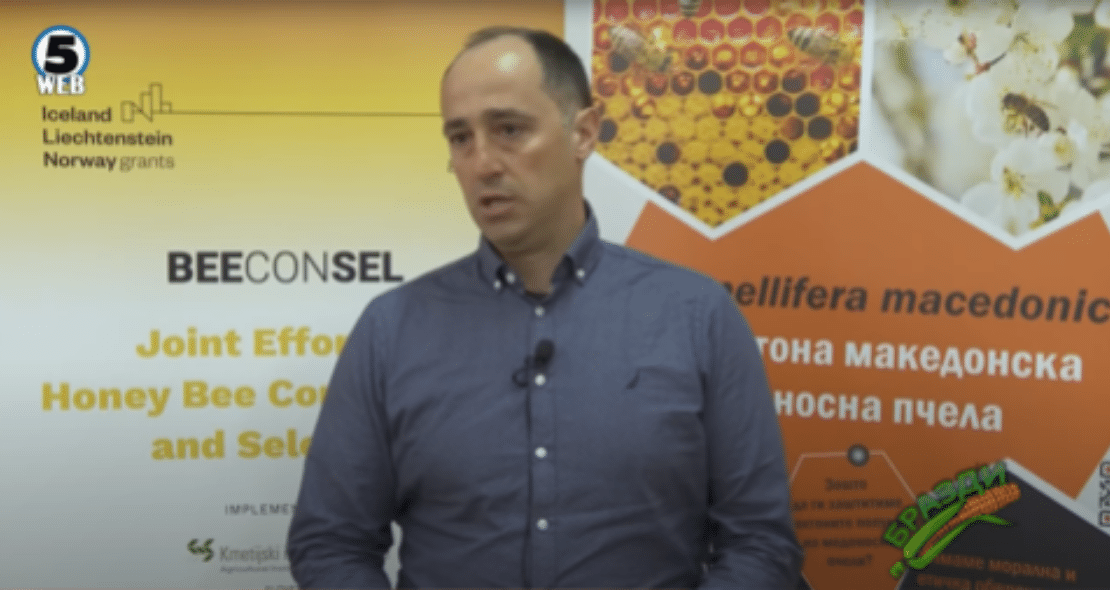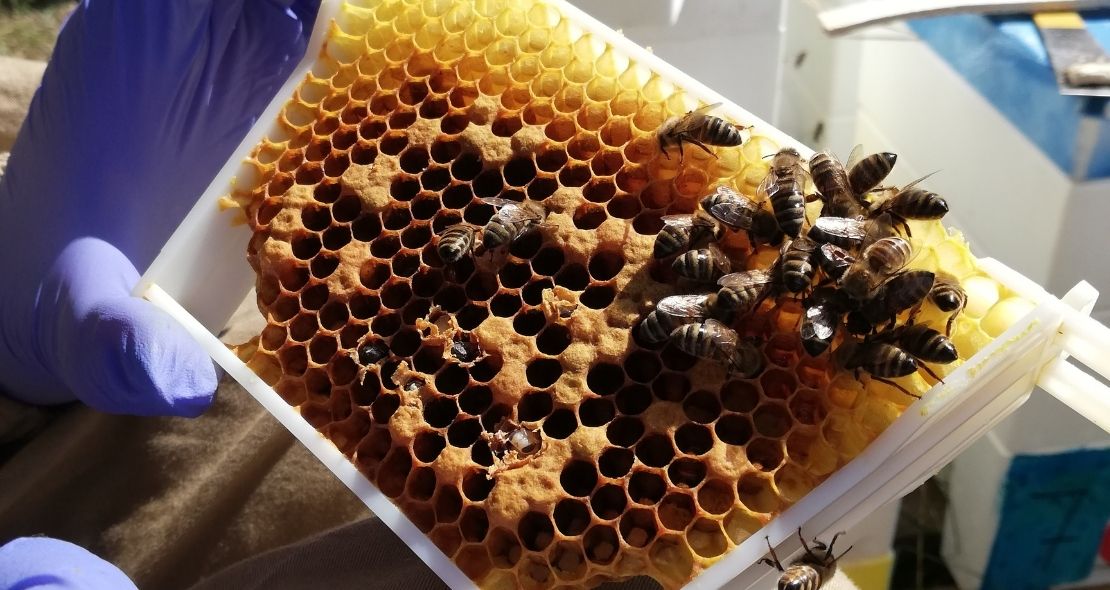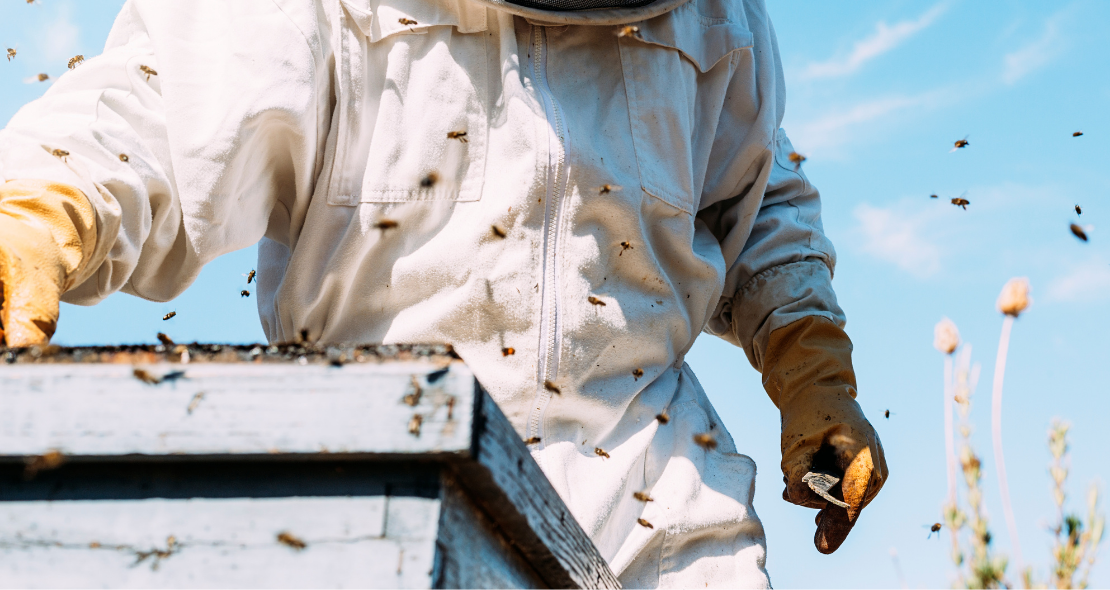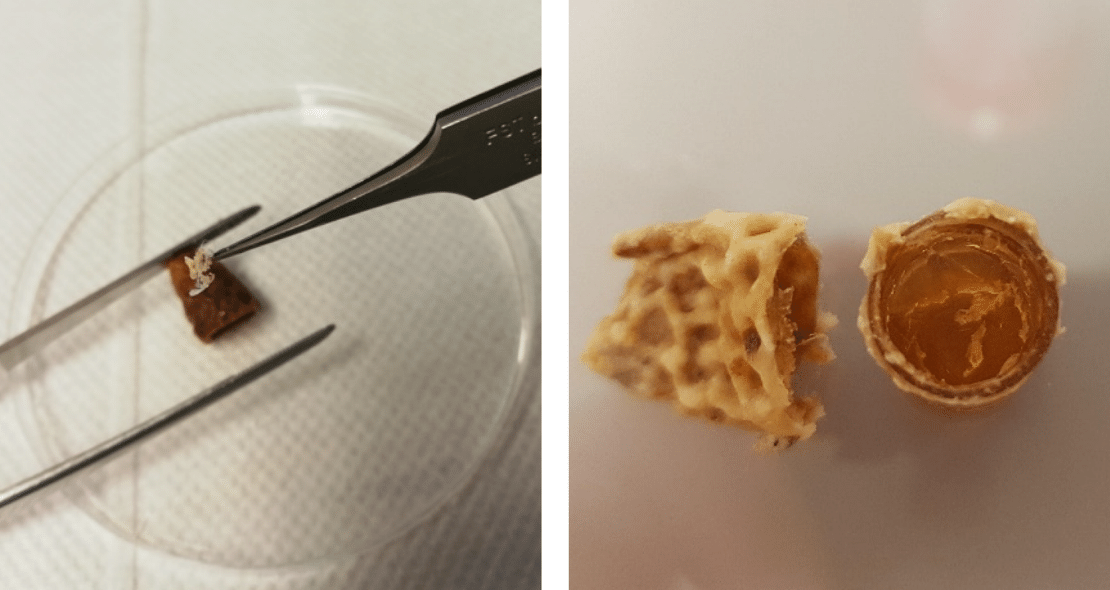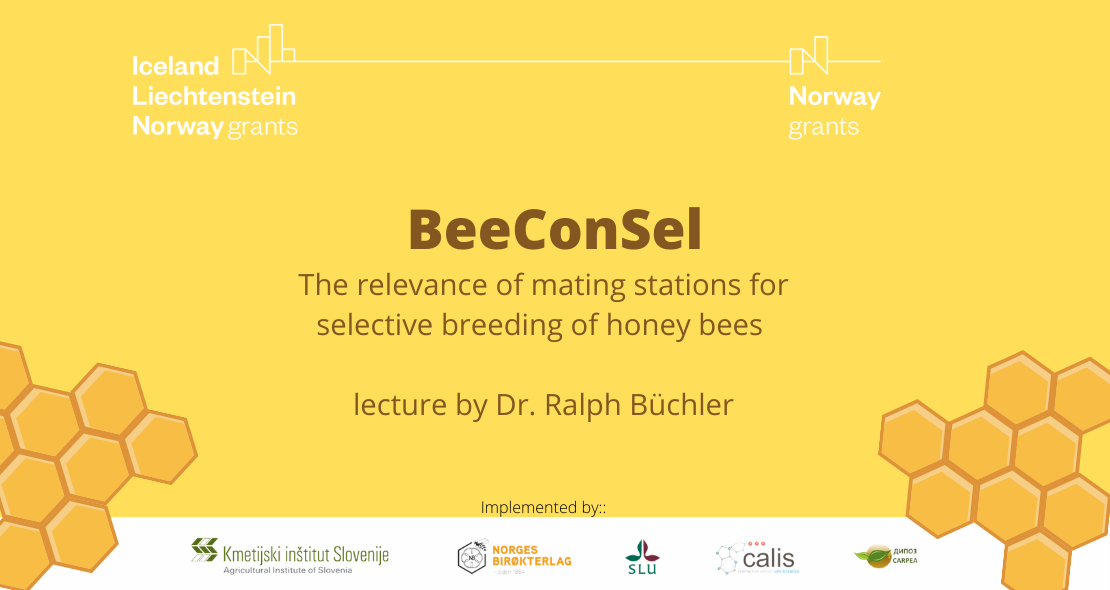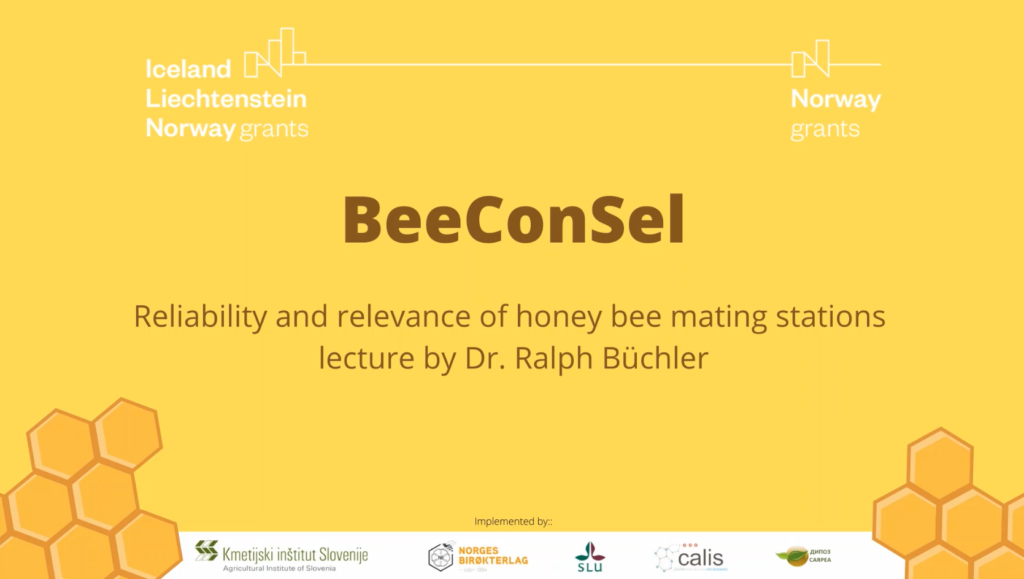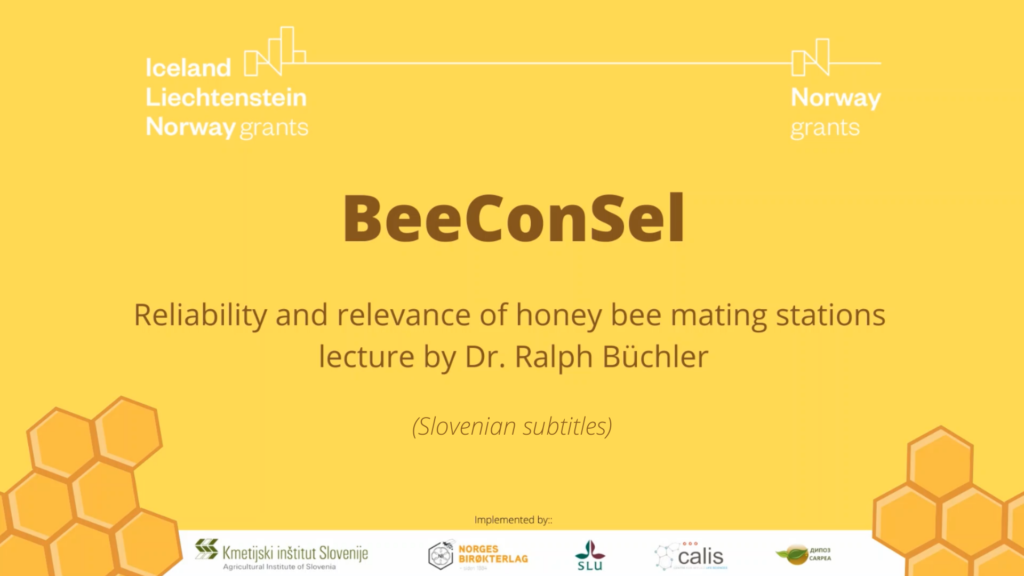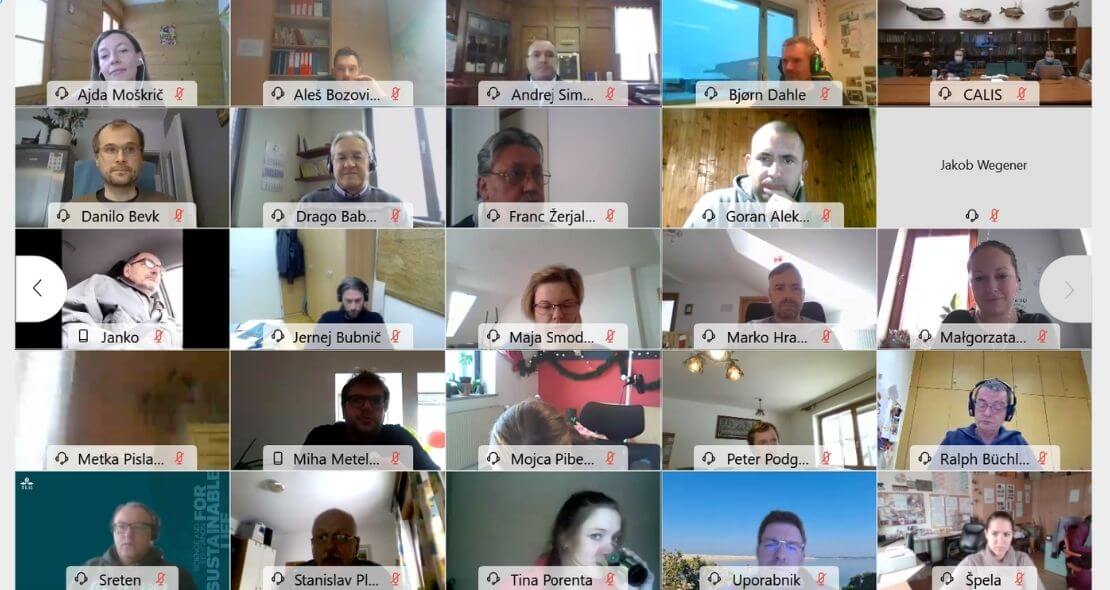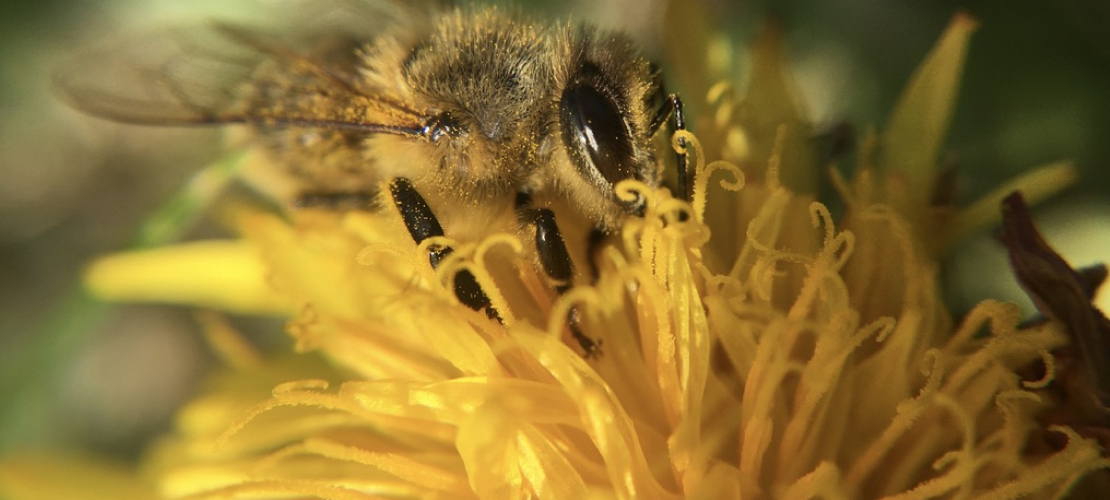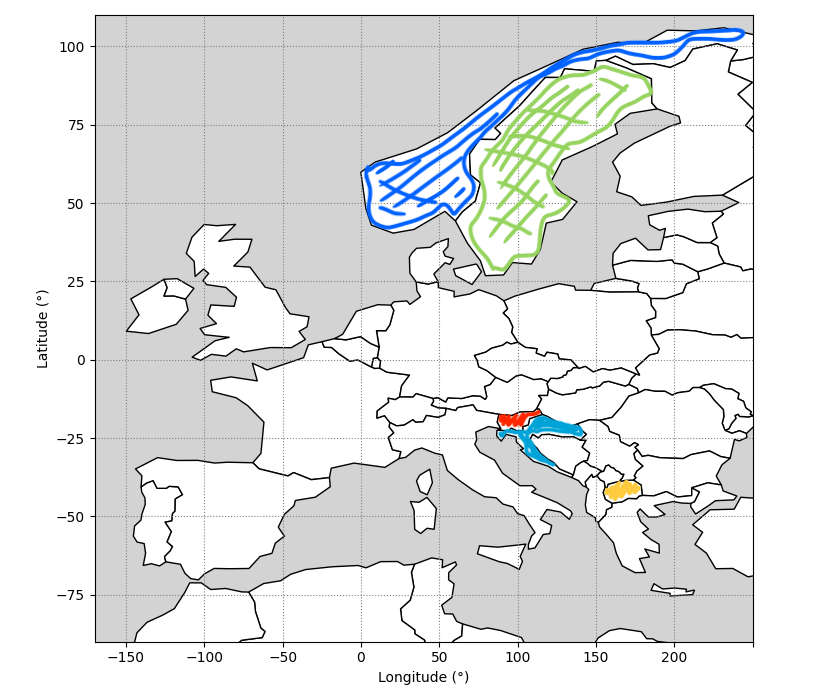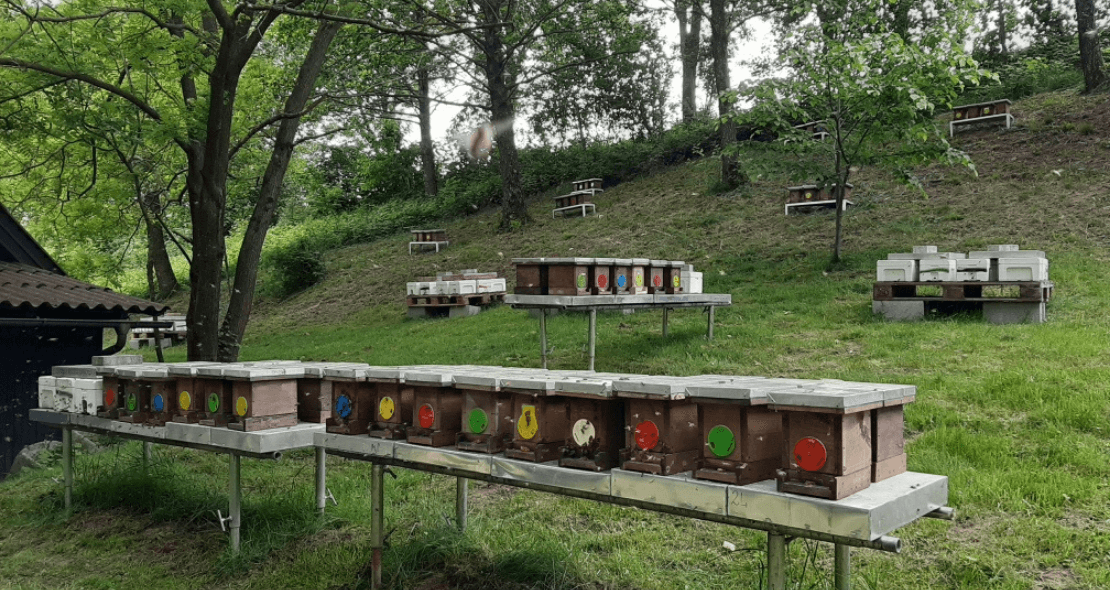BeeConSel was presented on Brazdi, an agricultural show on Macedonian Channel 5 television. Prof. Dr Aleksandar Uzunov, coordinator of BeeConSel in N. Macedonia, Assoc. Dr Janez Prešern, project coordinator, and Magdalena Jovanovska a student at the Faculty of Agricultural Sciences and Food in Skopje and our target group member talked about the goals, activities and expected results of the implementation of the BeeConSel project.
BeeConSel at the COLOSS SBB e-Workshop 2021
Yesterday we attended the traditional Research Network of Sustainable Bee Breeding spring (RNSBB) workshop, organised by the COLOSS ASSOCIATION.
Dr. Marin Kovačić, from our project partner Centre for Applied Life Science Healthy Food Chain (CALS), participated in the workshop with a presentation of a Survey developed within the WP1 – Assessment of current status. With the desire to achieve project reach outside the consortium borders, Dr Kovačić invited attendees to contact him regarding the possible participation in the Survey.
JClub – discussing honeybee mating, selection and other related topics
To discuss honeybee mating, selection and other related topics within the scientific community, the BeeConSel organizes regular Journal Club – JClub meetings with students and researchers from our team and beyond.
By now, we have discussed the following topics:
4.2.2021
Chapman NC, Lim J, Oldroyd BP. Population genetics of commercial and feral honey bees in Western Australia. J Econ Entomol. 2008; 101(2):272-7.
14.1.2021
Plate M, Bernstein R, Hoppe A, Bienefeld K. Long-Term Evaluation of Breeding Scheme Alternatives for Endangered Honeybee Subspecies. Insects. 2020; 11(7):404.
7.1.2021
Tihelka E., Cai C., Pisani D. et al. Mitochondrial genomes illuminate the evolutionary history of the Western honey bee (Apis mellifera). Sci Rep. 2020; 10:14515
24.11.2020
Loper G, Wolf W, Taylor O. Honey Bee Drone Flyways and Congregation Areas: Radar Observations. Journal of the Kansas Entomological Society. 1992; 65(3):223–230.
17.11.2020
Pechhacker H. Physiography influences honeybee queen’s choice of mating place (Apis mellifera carnica Pollmann). Apidologie. 1994; 25(2):239–248
a
If you are a student or a researcher interested in honeybee mating/selection and would like to join our JClub, contact us at beeconsel@kis.si. We are always happy to welcome new faces and points of view.
Non-Destructive Genotyping of Honeybee Queens to Support Selection and Breeding
A new approach towards the non-invasive sampling of honey bee queens! Steppingstone for genomic selection, conservation and disease prevention.
The relevance of mating stations for selective breeding of honey bees
We were very honoured to host Dr Ralph Büchler, Landesbetrieb Landwirtschaft Hessen, Bieneninstitut Kirchhain, Germany, on our Kick-off meeting held on 4th of December, 2020.
His lecture The relevance of mating stations for selective breeding of honey bees really highlighted the broader impact of project goals and sparked a lot of interest among the participants, that is why we would like to share the video of his lecture with all of you.
The video is avaliable in English without subtitles and with Slovenian subtitles
The video is published with the consent of Dr Büchler. You shall not download, copy, reproduce, distribute, transmit, broadcast, display, sell, license, or otherwise use the content for any other purposes without the prior consent of the BeeConSel team. You can contact us through beeconsel@kis.si
The official start of the BeeConSel project
We officially started the project with a two day online event held on the 3rd and 4th of December, 2020.
The first day was dedicated to planning our project activities on our 1st Steering Committee, which went very smoothly and successfully.
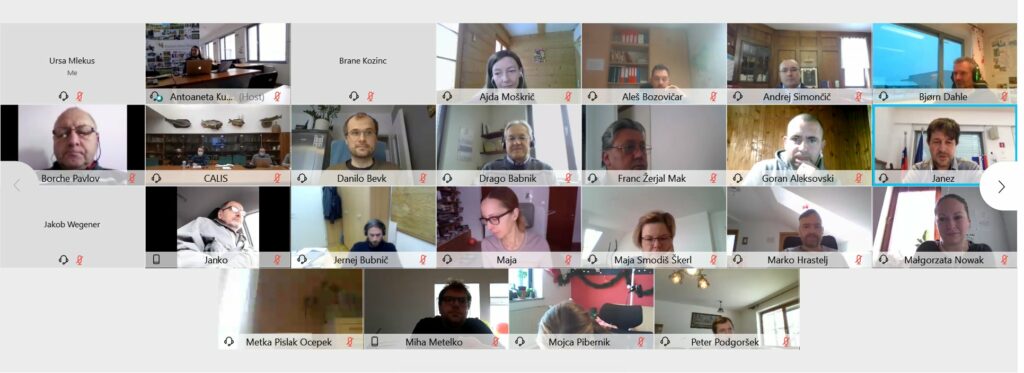
The official presentation for the public and media was held on the second day and was organised by the lead partner, Agricultural Institute of Slovenia. Approximately 60 attendees were first greeted by the director of Agricultural Institute of Slovenia, prof. Andrej Simončič, PhD. The project was then presented by the coordinator of the project, asst. prof. Janez Prešern, PhD. The statement of the project value to the beekeeping was given by Jože Podgoršek, PhD, Minister of Agriculture, Forestry and Food and on behalf of the EEA and Norway Grants Fund, the attendees were greeted by the Lead Consultant MaŁgorzata Nowak.
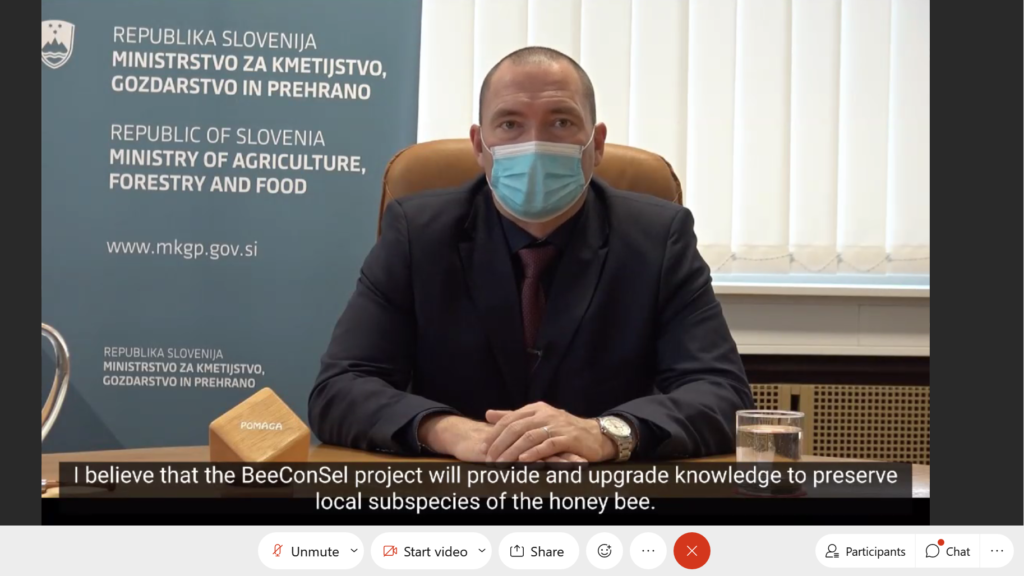
Minister of Agriculture, Forestry and Food of Slovenia
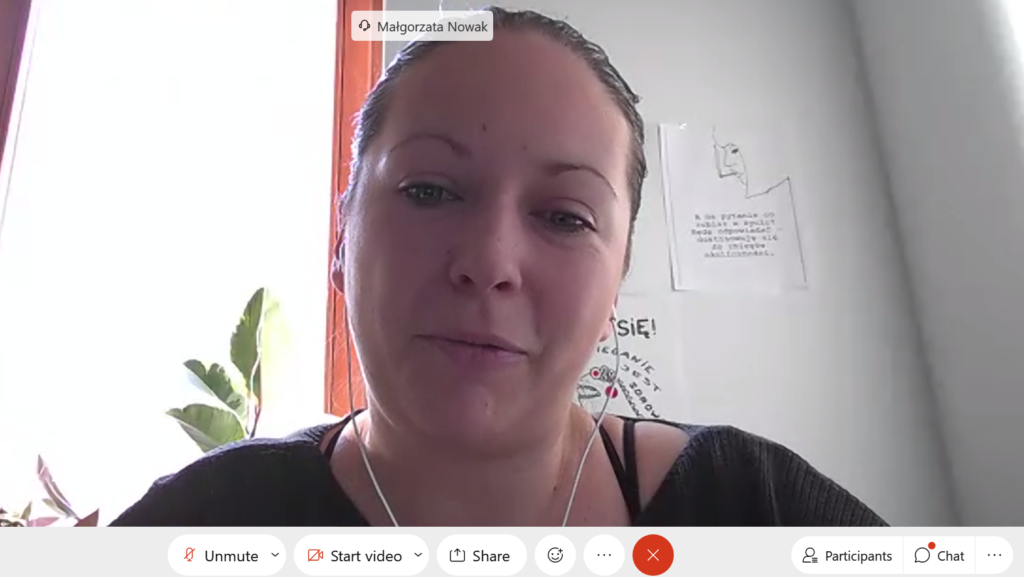
Lead Consultant for EEA and Norway Grants Fund
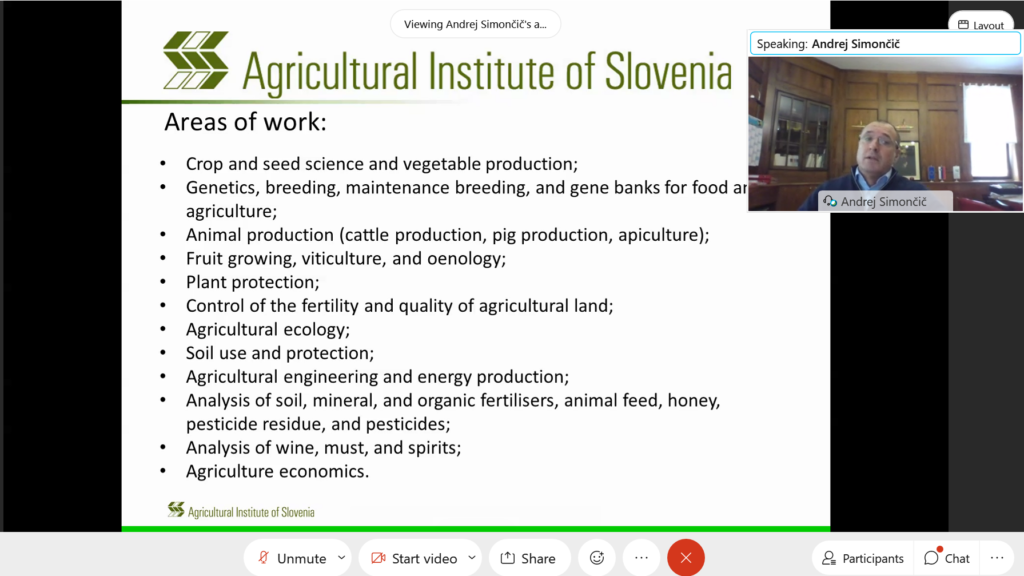
director of the Agricultural Institute of Slovenia
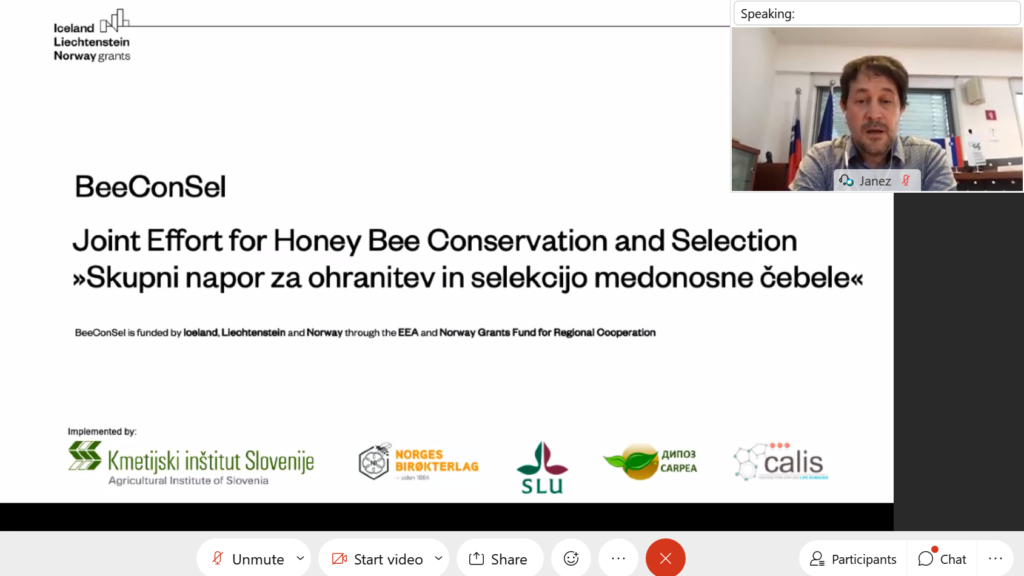
project coordinator
Dr Ralph Büchler, Landesbetrieb Landwirtschaft Hessen, Bieneninstitut Kirchhain, Germany rounded up the event with his lecture “The relevance of mating stations for selective breeding of honey bees”, which has highlighted the broader impact of project goals and sparked a lot of interest among the guests of the event.
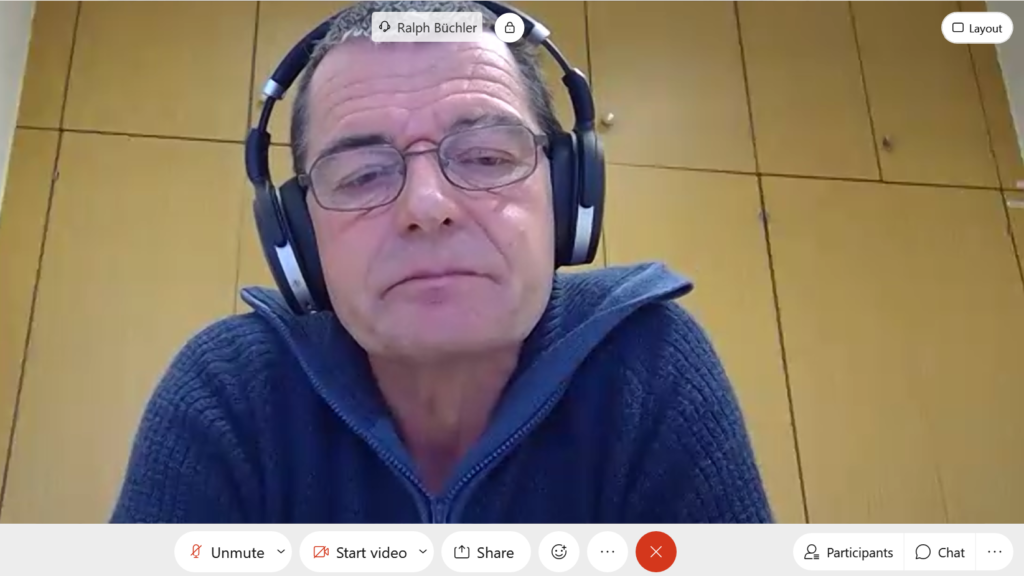
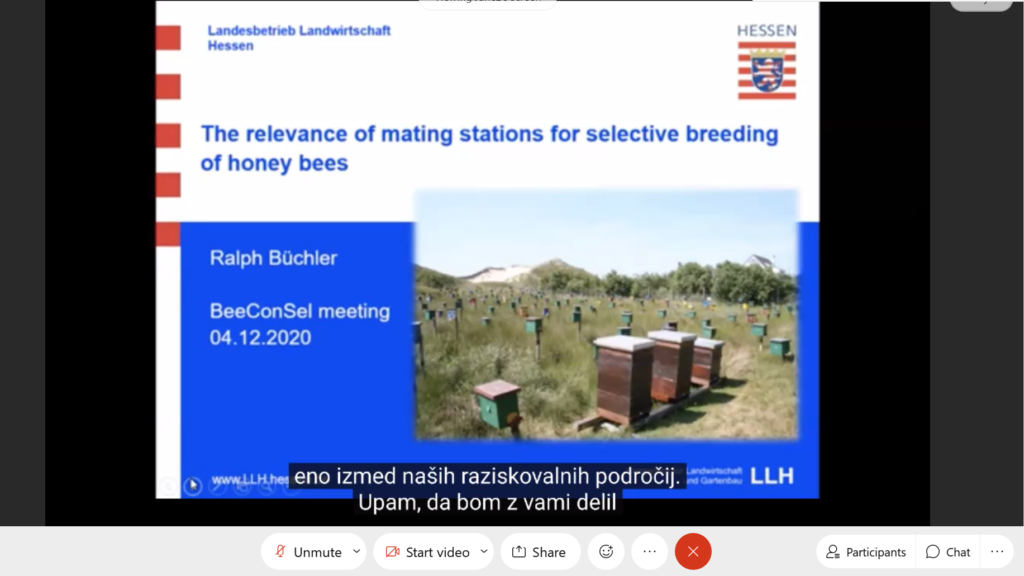
Although the kick-off meeting was a little different than we are used to, it was still a resounding success.
The Universe is a Big Place
But what are we? What defines and join us is a concern, concern about the loss of genetic diversity, about the loss of richness of genes and loss of the infinity of possible combinations of genes that gives the species at least chance to respond to an ever-more-demanding environment.
Here, at the edges of the Old World, within the native range of Apis mellifera, there are all reasons for being concerned – but not for the honey bees as the individuals, nor for honey bees as the colonies.
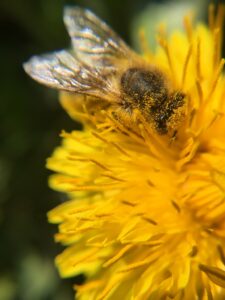
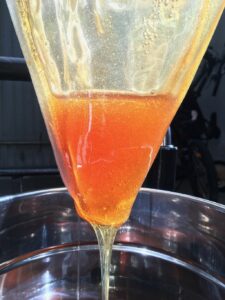
Why such concern of all the sudden?
The concern isn’t sudden, it was building up for quite some time now. On our own, we have limited reach. Therefore we waited for the opportunity which gave us the chance to bring our interests together with other concerned stakeholders in beekeeping. EEA and Norway Grants Fund for Regional Cooperation provided such chance through the »Common challenges – Shared solutions« call.
The Consortium
In the Universe, the giant clouds later merged through gravity to form galaxies, stars, and everything else seen today. In our world, five partners banded together to address the concern mentioned above. The project partners from Slovenia, Croatia, Northern Macedonia desire to profit from the experience of the partner from donor country the know-how of the Swedish expert partner and to adopt their knowledge to our local conditions and situations.
The diverse project consortium is lead by Agricultural Institute of Slovenia which is joined by the Norwegian Beekeepers’ Association, Swedish Agriculture University and two non-academic partners, CARPEA from North Macedonia and CALS from Croatia, both SMEs involved in research.

BeeConSel Kick-off Meeting
The kick-off event will happen on Friday, 4th of December 2020 at 9:00. The highlight of the event will be a lecture by dr. Ralph Büchler, Bieneninstitut Kirchhein, ZRN, about the reliability and importance of mating stations. The Minister RS for Agriculture, Forestry and Food, dr. Jože Podgoršek, is expected to give a statement. The expected duration of the event is 2 hours.

